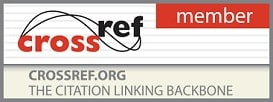Impact Factor: Impact Factor(RJIF): 5.3
International Journal of Home Science
2019, VOL. 5 ISSUE 3, PART D
Diversities and dualities to pedagogical realities: An analysis of early childhood curricular beliefs in the Indian context
Author(s): Dr. Namita Bhatt and Prerana Mohite
Abstract:
Early childhood education curriculum has long been a subject of philosophical discussions and debates. Owing to tremendous diversities in children’s needs, cultural traditions, parenting practices and family contexts a variety of assumptions surround its conceptualization and practice. Little attention has been paid to examination of the assumptions of national early childhood documents and views of educators, practitioners and parents regarding curriculum and the role these might play in early childhood education curriculum and pedagogy. A inquiry into meanings ascribed to purpose and aims of early childhood education, views regarding children, concepts of learning, thoughts on knowledge, views on teachers/teaching and views on assessment would throw light on where preschool goals and practices comes from, what and whose purposes they intend to serve and whether they are functional in the local context.
Early childhood education curriculum has long been a subject of philosophical discussions and debates. Owing to tremendous diversities in children’s needs, cultural traditions, parenting practices and family contexts a variety of assumptions surround its conceptualization and practice. Little attention has been paid to examination of the assumptions of national early childhood documents and views of educators, practitioners and parents regarding curriculum and the role these might play in early childhood education curriculum and pedagogy. A inquiry into meanings ascribed to purpose and aims of early childhood education, views regarding children, concepts of learning, thoughts on knowledge, views on teachers/teaching and views on assessment would throw light on where preschool goals and practices comes from, what and whose purposes they intend to serve and whether they are functional in the local context.
The research aimed to gain deeper insight into understanding the way in which indigenous knowledge enters into thinking about children and which guides practice with children. Data was collected through a semi structured open ended questionnaire (Adapted from Schiro, 2008) [44]. The qualitative descriptions were subject to content analysis. The results revealed significant points of departures in the assumptions of educators, early childhood teachers and parents of young children regarding early childhood education curriculum. Significant points of convergences were identified with the basic philosophy of developmentally appropriate practice, yet major departures were also evident. Critical investigations of assumptions to the foundations of curriculum revealed the potential within the existing philosophy underpinning early childhood curriculum and pedagogy to accommodate and strengthen its position to suit the cultural context, more so in terms of organisation of knowledge and practice with children. The results also throw light on the finer nuances of application of a developmentally appropriate curriculum in the Indian context and build a guiding framework which better equips the practitioner to create a curriculum which is able to respond to the cultural realities of children.
Pages: 196-203 | 350 Views 127 Downloads
How to cite this article:
Dr. Namita Bhatt, Prerana Mohite. Diversities and dualities to pedagogical realities: An analysis of early childhood curricular beliefs in the Indian context. Int J Home Sci 2019;5(3):196-203.






